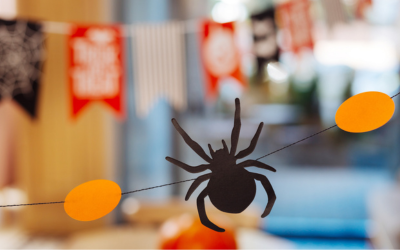It’s Spider Season: What to Know to Protect Your Home and Family

When cooler temperatures arrive, so can unwelcome spiders in your home. Fortunately, while all spiders carry poison (venom), most spider fangs are too short or fragile to break through human skin. Or their venom is too weak to cause damage to people or pets. Often, spider bites cause only minor, local reactions at the bite site. But some spider bites can be more serious. Knowing which spiders pose an actual threat in your area can be useful in preventing serious illness and harm.
Which spiders are dangerous in Washington state?
According to the Washington State Department of Health, only two types of spiders in Washington state can cause illness or harm in people: the black widow and the yellow sac spider.
- Black widow spiders (common to eastern Washington) are small, shiny, black and button-shaped. They are the only spiders with the signature reddish-orange “hourglass” shape on their belly. A black widow’s bite releases a poison (toxin) that can damage the nervous system.
- Yellow sac spiders (found primarily in eastern Washington and the Seattle area) are small and colored yellow, white, or sometimes greenish, with darker-colored legs and upper body areas.
How should I treat a dangerous spider bite?
Quick treatment of both types of spider bites is key to preventing more serious complications, especially in young children.
- Seek emergency medical care if you suspect a black widow spider has bitten you. Symptoms include muscle cramps or twitches (often near the site of the bite), muscle spasms all over the body (sometimes within an hour of the bite), severe belly pain (sometimes accompanied by nausea and vomiting), increased blood pressure and sweating.
- Clean the bite with warm water and soap.
- Apply a cold pack to avoid skin damage and reduce swelling. To make a cold pack, put ice cubes in a plastic bag that seals at the top. Wrap the bag in a clean, thin towel or cloth. Don’t put ice or an ice pack directly on the skin.
- Raise (elevate) the affected body part, if possible.
- If symptoms don't improve, seek medical attention.









